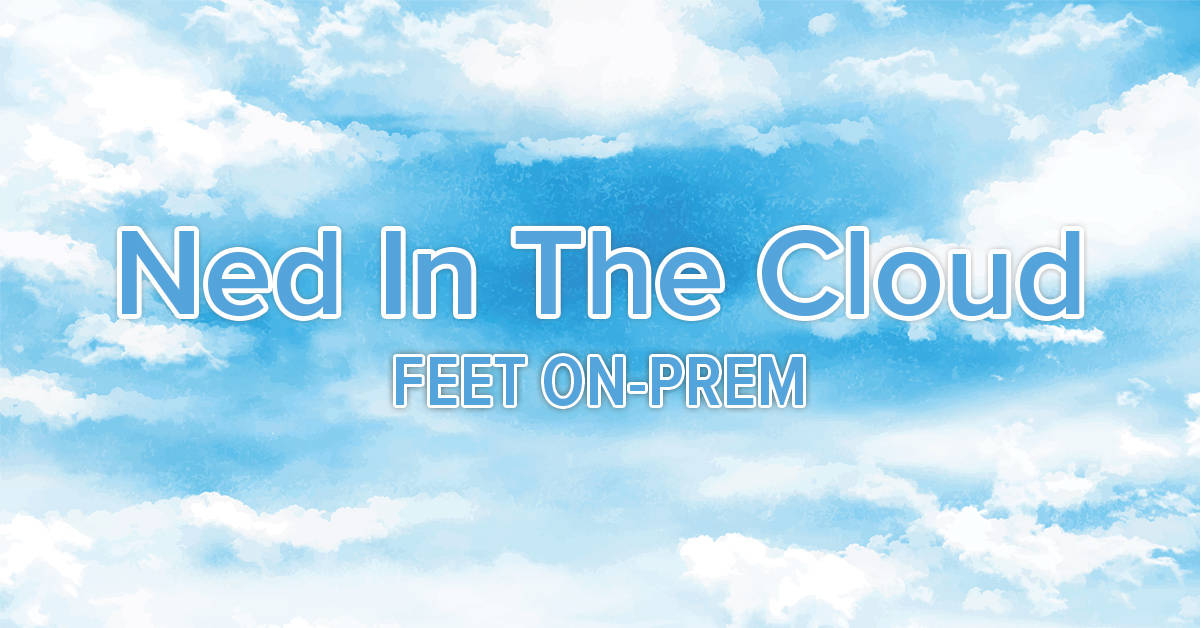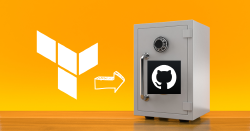


This was a busy year for me personally and professionally. I started the beginning of 2018 feeling a little unsure about what was going to happen. There were a lot of changes happening at work. I had accepted a new position in June 2017, and that role was still evolving and refining. I was slogging through the development of my second course on Pluralsight. And I was trying to get back in the habit of blogging on a semi-regular basis. Now that the year is winding down, I thought it might be nice to take a look back at what happened, and how I fared on things I wanted to accomplish. The esteemed Scott Lowe does something similar each year, although he is far more organized about it. My plans for 2019 will be a separate post.
Here are the goals I had for 2018, or at least the ones I knew about at the beginning of the year:
Build a successful cloud practice
In the summer of 2017, I accepted a new position at work to develop our Cloud Solutions offerings. It was a shift from doing consulting work at a client, which was my job for the previous five years. That’s the kind of work that is rewarding, but also can burn you out after a while. In mid-2017 I knew I was ready for a change, and this shift was something new and interesting. Director of Cloud Solutions became my somewhat nebulous title. I don’t manage anyone directly, so I’m not directing people. I’m no longer delivering on projects for clients. I’m also not a sales person, and I am not directly responsible for a P&L center. The closest thing I can equate it to is a combination of a program manager and technical evangelist. It took me the better half of 2018 to figure out exactly how I fit into the organization in my new role, and what I needed to do to be successful. I’m still figuring that out, but things have shifted internally so that I now feel I have the required support and guidance to be successful. That’s the abbreviated version, and probably the one that is appropriate to tell publicly.
Learning a new role in a new group at a company that is shifting its focus is perilous ground to dance on. I think I could have done a better job asking for help, taking ownership of the new practice group, pushing back on unrealistic expectations, and setting proper expectations early on. People usually don’t like to talk about their failures, and neither do I. But I want to be honest with myself about this one. I failed to achieve my goal here, and the best I can do is to try and learn lessons that I can apply in 2019. Overall I would give myself a D on this one.
Learn to program in Go or Python
“I am not a developer.” That’s a mantra I hear from Ops and Infrastructure people a lot, myself included. As I started 2018, I was working on my second course about Terraform for Pluralsight. I was spending a tremendous amount of time in VS Code creating Terraform configurations, ARM templates, and PowerShell scripts. For someone who is not a developer, I was spending a lot of time in development tools. I thought that perhaps I should start learning a new language outside of PowerShell. Terraform is written in Go, and that seemed like it might be a good place to start. I also started to do some work with Ansible, which relies heavily on Python, so that also seemed like a logical place to start.
How did I do? I worked through half a course on Python, and then got distracted. The main problem was that I didn’t have an actual project or goal to apply my knowledge to. I’m a practical learner, and I really need a project to drive my learning process. I actually managed to learn a decent amount of Go. I did a series of blog posts about Terraform functions. When a particular function was acting weird, I went and looked at the source code on Github. As a result I ended up learning how to read Go code, even if I wasn’t actively programming. There was one function, timeadd, that didn’t handle dates. I decided that I wanted to try and write a a new function, dateadd, that would introduce this functionality. I issued a pull request into Terraform main, but that’s where things got bogged down. One of the maintainers wanted me to incorporate the functionality in dateadd as an extension of timeadd with additional arguments. They also wanted me to create a struct for the data type and do some other stuff. That was beyond the little I had learned in Go, and unfortunately I didn’t have time to dedicate to learning it. Overall I would give myself a C on this one. I learned some Go and applied it to a project. I learned some Python and applied it to nothing.
Keep creating new Pluralsight courses
In 2017 I created my first Pluralsight course. In 2018 I created four more. The reason I didn’t have enough time to keep learning Go? It was because the bulk of my free time was dedicated to creating these courses. The acceleration of course development was fueled by a new partnership between Microsoft and Pluralsight, which created a demand for Azure based courses as a ramp up to Microsoft Ignite. My last three courses have all been about topics in Azure, and now you know why. Creating these additional courses on a compressed timeline forced me to streamline the process by which I created the slide decks, recorded the content, and edited my recordings. The last course I did was eight modules over four weeks. That’s two modules a week! Overall I would give myself an A on this one.
Blog on a weekly basis
Based on my count, I published 81 posts in 2018, not including this one. On average that is more than one a week, but the posts were not evenly distributed. The series of posts on Terraform functions published daily. The series kept me blogging consistently from June through September. It also burned me out for a bit. During the rest of the year I was able to post at least once a month. Overall I would give myself a B+ on this one.
Podcast on a weekly basis
One of the podcasts I do for work, Buffer Overflow, is a weekly tech news podcast. Knowing that we had committed to a weekly cadence made it easier to be consistent in delivery. My cohost Chris and I realized pretty early on that we needed some help generating the necessary content for each week. To that end, we started asking other people around the office to be a guest on the show. Guests would add more perspectives to our podcast, provide coverage when Chris or I weren’t available, and help source topics for us to talk about it. It was honestly the best thing we could have done for the show! Kim, Brenda, Jen, and Hank have helped the podcast become more entertaining and kept Chris and I grounded in reality. I cannot thank all of them enough for being willing to dedicate their time and effort on the show in addition to their daily job responsibilities. Overall I would give myself an A on this one.
Speak at more user groups and conferences
Part of building up my personal brand and developing my career was doing more public speaking. This year I did a lot of that:
You know when I put it all in a single list, it seems like a lot. And it was! It’s not the crazy speaking schedule that professional presenters might have, but it was still a lot more than the previous year. Over the course of the year, I could tell me presentation skills were getting better. My PowerPoint decks were more engaging and my demeanor was more relaxed. Overall I would give myself an A on this one.
It was a busy and productive year. I met some of my goals, and fell short on others. That’s okay. If I was successful in every endeavor, it would probably mean that I wasn’t challenging myself enough. If you’ll forgive the indulgence, my three pillars are:
There’s no doubt that I made myself uncomfortable this year, and there’s also no doubt that I failed on some of my goals. I tried to be nice this year as well, though I think I could have been kinder to some people. How do I plan on pursuing my pillars in 2019? That will be the topic of my next post.
Creating Your First Terraform Repository
March 4, 2024

Comparing OpenTofu and Terraform
January 22, 2024

January 17, 2024
